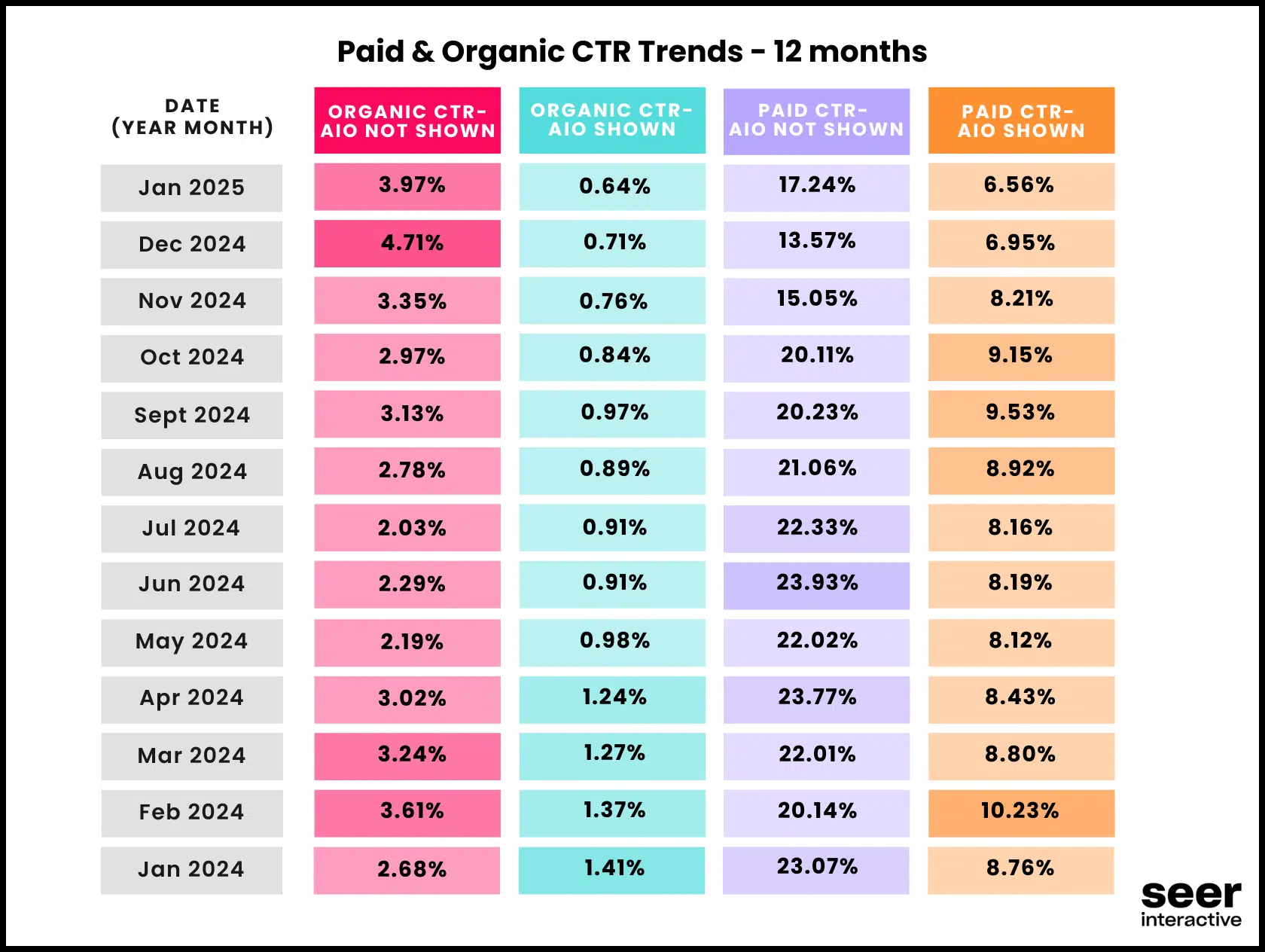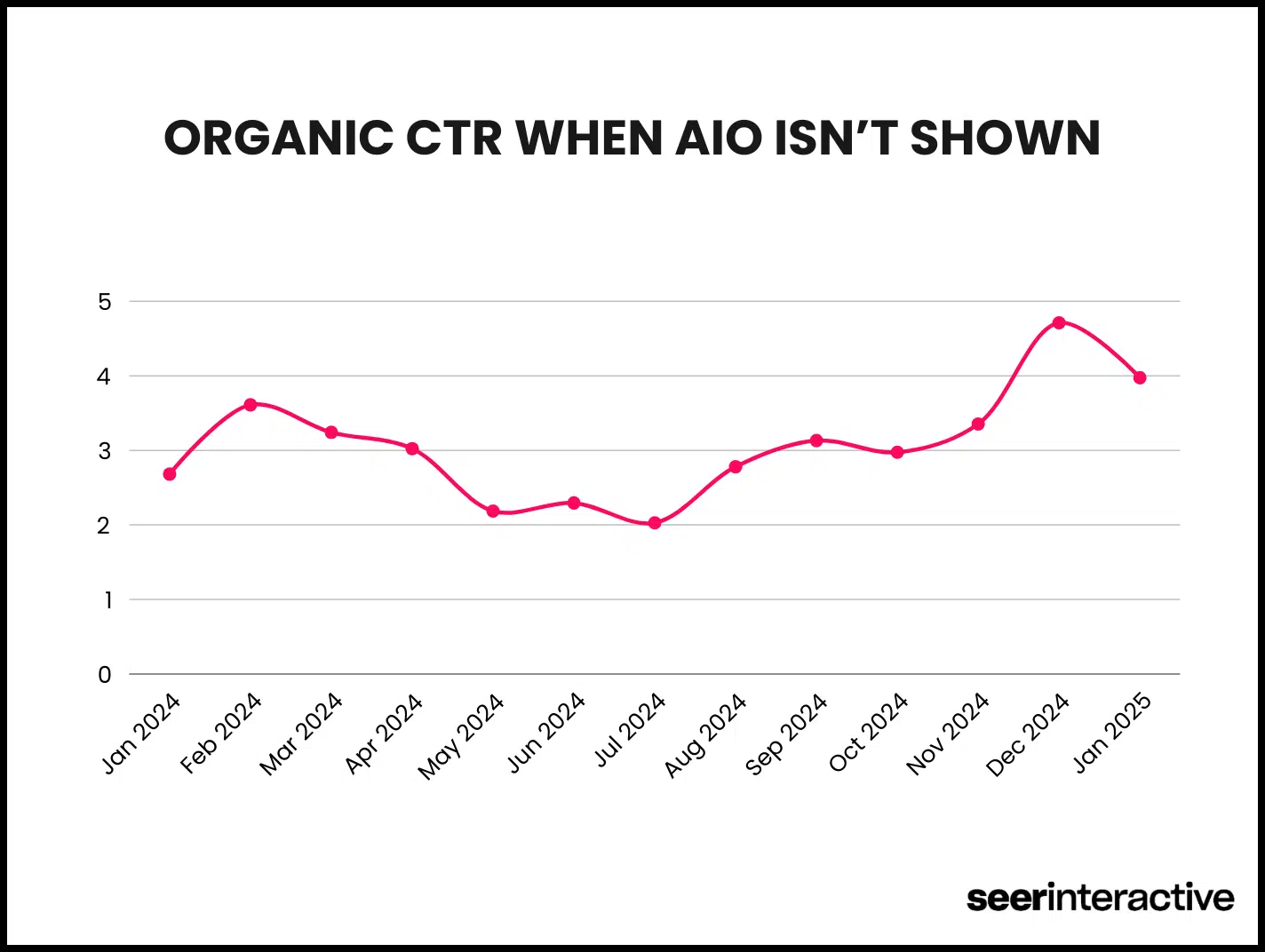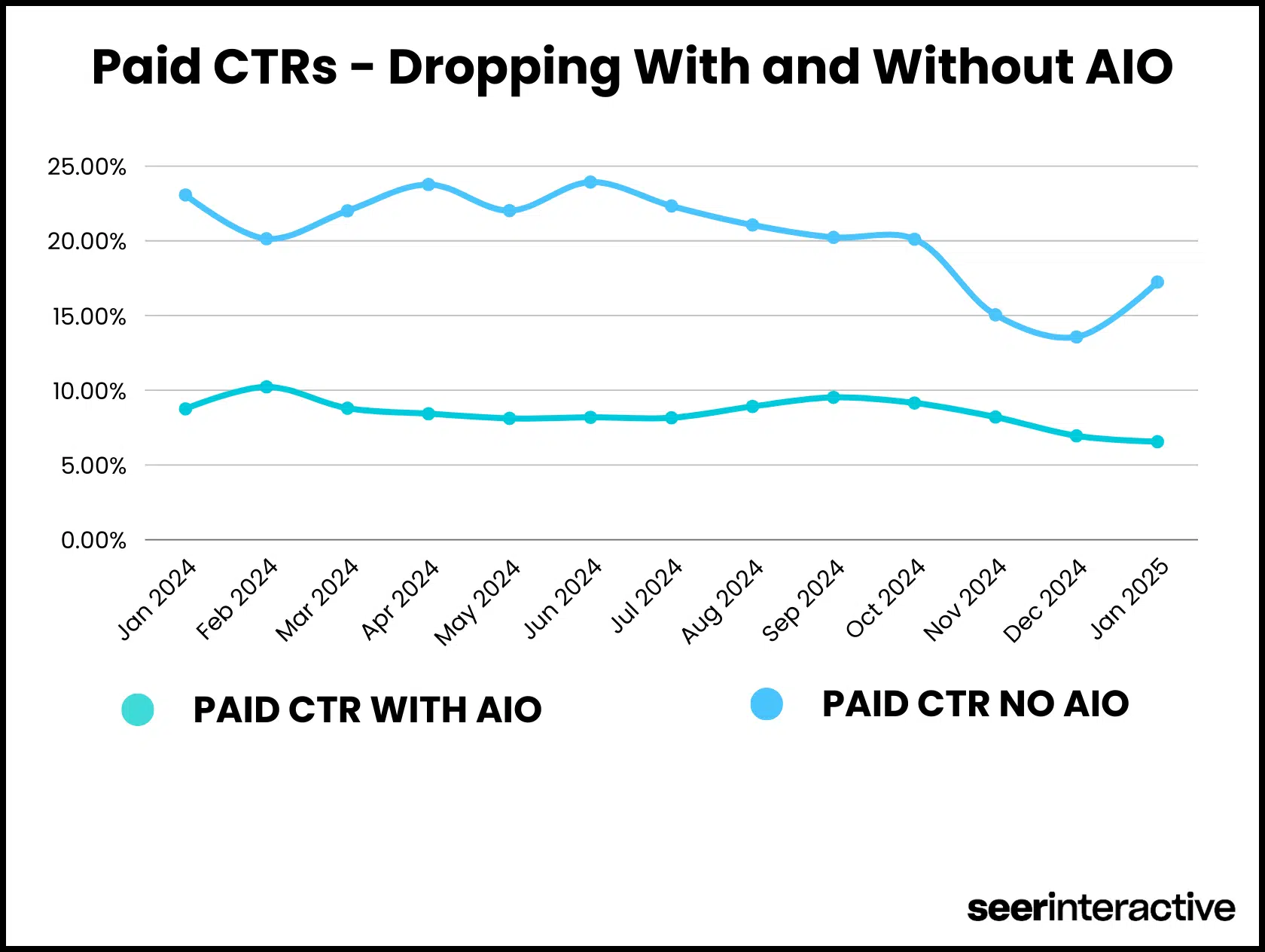Organic and paid click-through rates (CTRs) are down – and Google AI Overviews are partially to blame. However, paid CTR declined regardless of whether AI Overviews were present.☝
The new analysis of ~10,000 informational intent keywords ranking in the top 20 positions was conducted by digital marketing agency Seer Interactive.

Organic CTR drop. For queries where AI Overviews appeared, organic CTR fell sharply – from 1.41% to 0.64% – year over year. But when AI Overviews were not present, organic CTR actually increased:

Paid CTR drop. Paid CTR was down year over year regardless of whether AI Overviews were present:

But. Paid and organic CTR actually increased when a brand appeared in AI Overviews:
- Paid: 7.89% to 11%
- Organic: 0.74% to 1.02%
Why we care. Google’s AI Overviews are clearly impacting visibility, engagement, and traffic – as we knew would be the case when Google launched its precursor, Search Generative Experience (SGE). Though Google continues to say AI Overviews drive higher search satisfaction (as recently as yesterday on Alphabet’s Q4 2024 earnings call) – AI Overviews clearly aren’t driving as many clicks to websites year over year. Analyzing your own keywords will be important to understand whether you can be competitive in terms of earning visibility and clicks.
About the data. Seer pulled data from Google Ads, Google Search Console, and ZipTie.dev and merged it all together for its analysis, slicing and dicing it to identify changes from January 2024 to January 2025.
Comments